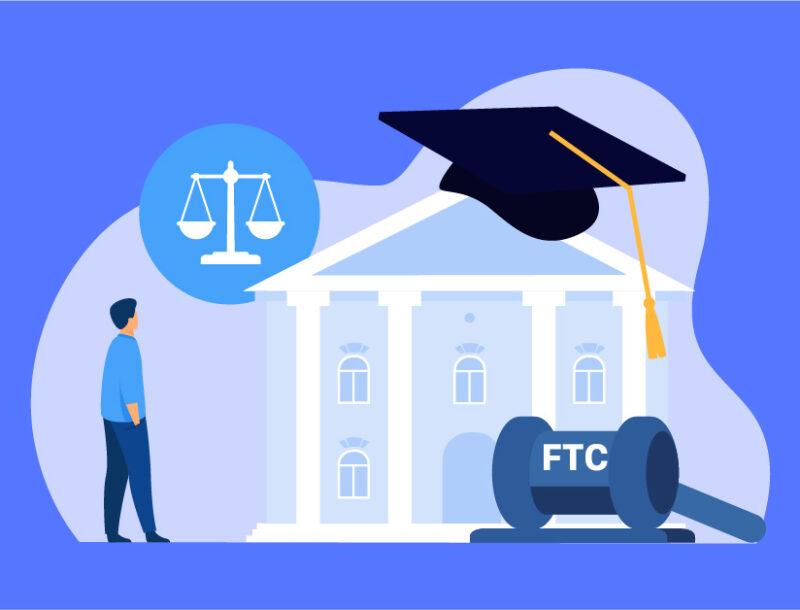FTC's Crack Down on Marketing Compliance for For-Profit Higher Ed

The Federal Trade Commission (FTC) has resurrected its Penalty Offense Authority under Section 5 of the FTC Act and has put for-profit education institutions on notice. A violation could lead to penalties up to $48k each-and that’s something to be concerned about.
The FTC is cracking down on deceptive claims from for-profit colleges, and recently sent 70 institutions a Notice of Penalty Offenses concerning deceptive or unfair conduct in the education marketplace. By sending these notices, the FTC is establishing that the company had “actual knowledge” of their wrongdoing, therefore allowing the Commission to hit these unscrupulous companies with heavy penalties for noncompliance.
According to the FTC, complaints around education-related issues surged roughly 70% between 2018 and 2020. As written in this blog by the FTC, it’s illegal under Section 5 of the FTC Act to misrepresent directly or by implication:
- the demand for people who have graduated from, or completed courses at, a specific institution;
- graduates’ employment prospects, the ease with which they’ll be able to get a job, or the employment opportunities in any field in which a course of instruction is offered;
- the types of jobs available to grads or for which they would be qualified;
- the number or percentage of people attending any course or completing any program or degree who have obtained employment, or the field or nature of that employment;
- how much grads will or may earn;
- the qualifications necessary to get jobs in the fields for which an institution offers training, including whether experience or additional education is required or advantageous; and
- the institution’s capabilities for helping students find employment or the assistance actually given to grads, including the existence of job placement services.
The FTC is resurrecting a dormant authority to deter wrongdoing and hold accountable bad actors who abuse students and taxpayers. Working closely with our state and federal partners, we’ll be monitoring this market carefully.
—Lina Khan, FTC
Before being confirmed as Director of the CFPB, former FTC Commissioner Rohit Chopra made a statement on the resurrected authority, saying: “The FTC will be enhancing its enforcement cooperation with other oversight agencies, like the Department of Education’s Office of Federal Student Aid and the Department of Veterans Affairs.”
In May of this year, Richard Cordray was appointed as Chief Operating Officer of the Department of Education’s Federal Student Aid (FSA). As former Director of the CFPB, Corday has a strong track record of taking action against companies who harm consumers, where he lead the CFPB’s first public enforcement action against a for-profit school in 2014.
One of FSA’s goals under the Biden administration is to ensure performance and accountability from all partners that they deal with, including the schools.
We need to make sure that they are doing what they should, that students are getting their money’s worth, and, frankly, that the taxpayers are getting their money’s worth as well
—Cordray
With the FTC, FSA, and other agencies like the CFPB working hand-in-hand to combat unfair and deceptive practices from for-profit colleges, these institutions need to be vigilant in their marketing compliance efforts to avoid regulatory scrutiny.
The FTC warns that “companies involved in the education marketplace should conduct a careful assessment to make sure their practices are lawful,” and that they should expect the FTC “to use every tool at its disposal to protect consumers from deceptive and unfair practices.”
Be Proactive In Compliance Efforts
PerformLine helps higher education institutions monitor their brand for instances of unfair or deceptive practices everywhere they communicate with consumers, including the web, social media, emails, messages, call centers, and documents. Our turn-key industry rulebooks are built on years of experience by working with regulators and higher education clients and help proactively monitor for language deemed unlawful by the FTC. Speak to one of our experts today to learn more.


